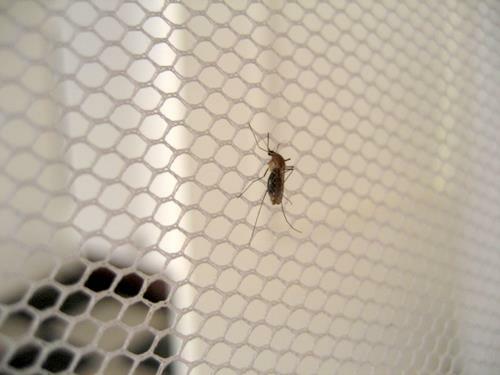
African malaria mosquitoes considered to be “highly resistant” to insecticides may not be as invincible as previously thought. Although unaffected in the short term, the mosquitoes’ long-term survival is reduced by almost 50% following exposure to insecticides on bednets, which reduces their disease transmission potential by two thirds.
A new joint study by the University of Glasgow and Liverpool School of Tropical Medicine (LSTM) may help explain why Long Lasting Insecticidal Nets (LLINs) still remain an effective tool in the battle against malaria, even in areas where most of the mosquitoes that spread the disease are not killed on immediate contact with them.
The study, which is published in Proceedings of the National Academy of Sciences (PNAS), indicates that because of the residual effects of insecticide exposure on mosquito survival “we may have a little more time than previously thought” to find a new alternative to the current insecticides used.
However the authors suggest said that these additional effects of LLINs are likely to be temporary too, and may diminish as mosquitoes become increasingly resistant to insecticides.
Professor Hilary Ranson from LSTM said “We have shown that mosquitoes currently classified as "resistant" still suffer significant long term effects of being exposed to insecticides that cut their ability to spread disease.
“Our results indicate that LLINs may retain longer than expected effectiveness in areas where resistance has developed, but we caution that these longer-term impacts on mosquito survival may be eroded by continued exposure to insecticides. There is therefore still a huge urgency to find additional methods to control malaria mosquitoes.”
Even if the insecticides used on bednets eventually have no short or long-term impact on mosquitoes, their use can still reduce transmission by protecting people from mosquito bites, and making it harder for mosquitoes to get the blood they need to reproduce.
But without an effective insecticide, the benefits to non-net users are dramatically reduced.
Insecticide-treated bed nets are the frontline malaria control strategy in almost all affected countries. In the last decade the use of these nets increased from almost zero to 60-90% - leading to the malaria burden in Africa almost halving.
However their widespread use has also triggered the development and rapid spread of malaria mosquito insecticide resistance in many African countries. This has raised concerns for malaria control because resistant mosquitoes don't die immediately after contact with these insecticides, which increases their opportunities to bite a human and transmit malaria.
Insecticide resistance in malaria mosquitos’ resistance is widespread but is an especially important problem in sub-Saharan Africa, not only because of levels of resistance but also because this area has 90% of the world's malaria cases.
Heather Ferguson from the University of Glasgow said: “The widespread use of insecticides for malaria control through Africa has been massively successful, and improved the health and well-being of many of the world's poorest children.
“The generation of insecticide resistance is an inevitable, and we feel worthwhile, price to pay for these gains. However if we are to retain and build upon this progress, it is imperative we diversify our strategies for control.”
It is hoped that alternatives to the current insecticides used will be found, either in the form of new insecticide products or other control strategies that target mosquitoes at different life span stages or with different modes of action.
The study ‘Delayed mortality effects cut the malaria transmission potential of insecticide- resistant mosquitoes’ is published in PNAS. The work was funded by the European Union FP7 Programme (grant no: 265660 “AvecNet”)